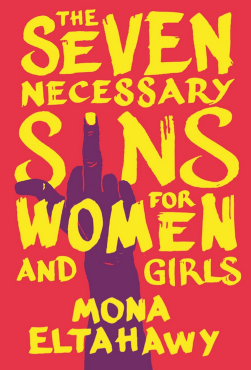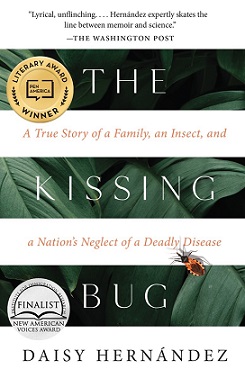A feminist manifesto urges women to reclaim their anger.

“Women are allowed to respond when there is danger in ways other than crying.”
These iconic words were spoken by Emma Lee, owner of and barista at Taste of Heaven Espresso stand, after a man threw a drink at her to protest its price and threatened her by saying, “Nobody’s going to miss you.”
In video captured of the altercation, Lee reaches behind her counter, grabs a hammer she says she carries for personal protection, and buries it in the windshield of the man’s car.
“What is going to happen next?” Lee asked rhetorically in the aftermath of the confrontation, during which she said the man screamed and spat at her. “What am I going to wait to have happen to have this be an even more terrible story?”
This horrifying incident unfolded as I was finishing Mona Eltahawy’s marvelous book of essays, The Seven Necessary Sins for Women and Girls. In the chapter on violence, one of Eltahawy’s necessary sins, she asks, “If violence is the language that patriarchy understands, isn’t it time more women speak it, if only for their own safety?”
Eltahawy describes confronting her own attacker, a man who groped her at a club, by punching him repeatedly in the face:
“Each time I punched him I yelled, ‘Don’t you ever touch a woman like that again! Don’t you ever touch a woman!’ I wanted him to know consequence…I wanted him to wonder — if he ever dared again to want to grope a woman — if she, too, would beat the fuck out of him.”
The raw violence demonstrated by Lee and Eltahawy may be scary for some people to confront, but it’s important to ask ourselves: What are these people afraid of? Neither Lee nor Eltahawy initiated the conflict in which they found themselves; rather, they simply had the courage and wherewithal to fight back.
(Eltahawy reported that the club manager later asked her, “Why didn’t you just let your husband take care of it?” Apparently, it’s not violence itself that is objected to, but violence perpetrated by women.)
“How many rapists must women kill before rape is erased?” Eltahawy asks. “What would the world look like if women openly declared that we would kill any man who raped us?” As a survivor of sexual assault myself, I find the question a salient one.
As Eltahawy points out, the insidious nature of patriarchy is at work within our own communities, wherever we may be. When, after days of harboring confusion and pain over my assault, I brought my concerns to the police (at the urging of a male friend), the woman of color who took my statement told me as I cried, “We probably won’t catch him now because you waited so long to report.”
The subtext: This is your fault. You let this happen. Why didn’t you do better?
For many years afterward, I did blame myself. I condemned myself, at 14, for not fighting back against a grown man who attacked me in public. I told myself it would be my fault if he molested another young woman because I hadn’t resisted.
As Lee said about her incident, “The conversation needs to change from what did she do to deserve that to why did he think that was at all appropriate.”
Now, I know two equally important truths: My attack was not my fault, and I can indeed fight back. As Eltahawy notes, every situation is different, and no woman is required to put herself in harm’s way for the sake of a larger societal goal. There are, however, situations in which it can be useful, even crucial, to react violently. At those times, women shouldn’t shy away from defending themselves.
“I want to bottle-feed rage to every baby girl so that it fortifies her bones and muscles,” writes Eltahawy in her chapter on anger. “I want her to flex and feel the power growing inside her as she herself grows from a child into a young woman.”
In one of my favorite feminist songs, rapper Dessa sings, “Funny, you don’t know the concessions that you’re making until you catalog them and by then they’re many and you’re battle-hardened.”
I am cataloguing my past concessions. I am done making new ones.
Mariko Hewer is a freelance editor and writer as well as a nursery-school teacher. She is passionate about good books, good food, and good company. Find her occasional insights of varying quality on Twitter at @hapahaiku.

